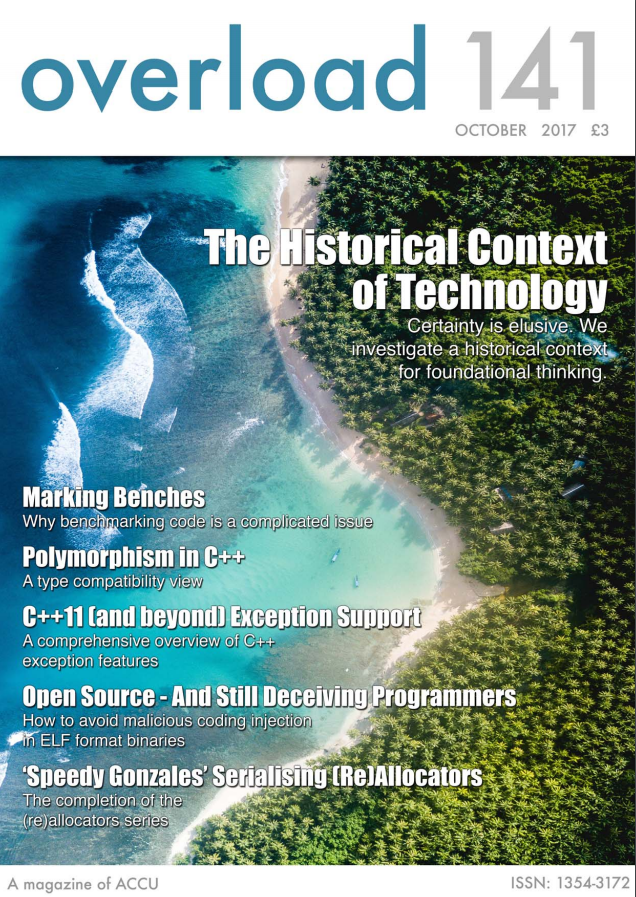Mutable--Arne Mertz
Do you know that keyword?
Mutable
by Arne Mertz
From the article:
The
mutablekeyword seems to be one of the less known corners of C++. Yet it can be very useful, or even unavoidable if you want to write const-correct code or lambdas that change their state...


